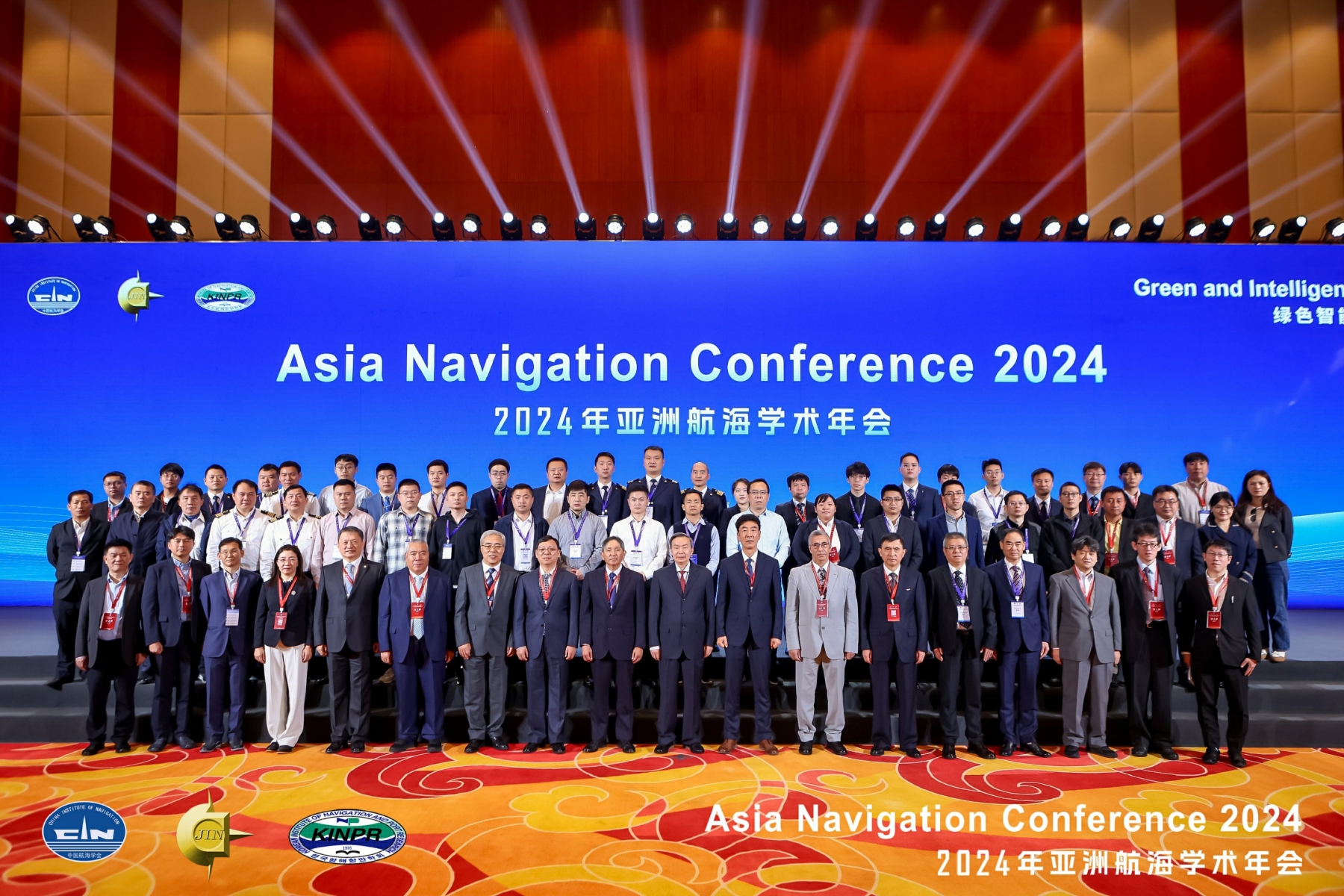2024 Asian Navigation Annual Conference Held in Beijing

The 2024 Asian Navigation Annual Conference was held in Beijing on October 30. Themed on “Green and Intelligent Navigation”, it was attended by the distinguished attendees including He Jianzhong, President of China Institute of Navigation; Takahiro Takemoto, President of Japan Institute of Navigation, Song Jae-uk, President of the Korean Institute of Navigation and Port Research, and Gan Jiaxiang, Deputy Director-General of the Department of Science and Technology, Ministry of Transport, who delivered addresses respectively. Li Shixin and Sun Yuqing, Vice Presidents of China Institute of Navigation presided on and delivered the keynote speeches on the opening ceremony. Representatives in the field of navigation in the Asian area from China, Japan, South Korea, Thailand, Vietnam engaged in the in-depth academic exchanges on topics such as navigation safety, communication and navigation systems, shipping technology, maritime training, and port construction, who shared the latest achievements and practice experience in the science and technology of navigation.

He Jianzhong, President of China Institute of Navigation
In his address, He Jianzhong highlighted the ongoing global technological revolution and industrial transformation, emphasizing the critical role of emerging technologies and industries—such as the digital economy and artificial intelligence—in driving economic and social progress. He underscored to seize the opportunities aligned with the evolving trends of green, low-carbon, and intelligent development trend in the shipping industry. He called for fostering the deep integration of advanced technologies with traditional maritime industries to accelerate the industry's green transformation, digital upgrading, and intelligent development. Furthermore, he expressed the expectation that institutions and scholars within the Asian maritime community will strengthen collaboration to advance the transformation and modernization of the traditional shipping industry, thereby enhancing global exchanges and cooperation in maritime science and technology.
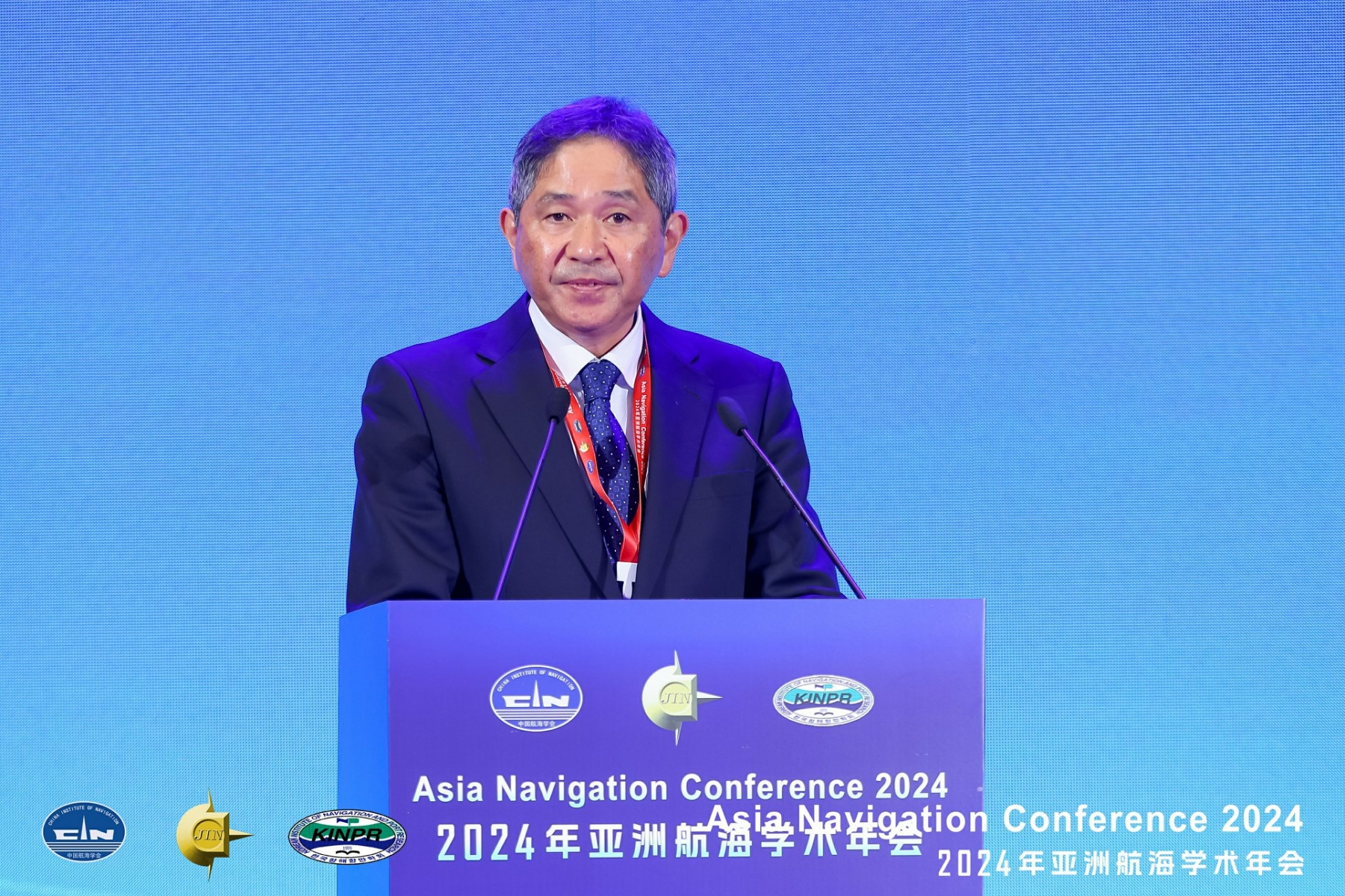
Takahiro Takemoto, President of the Japan Institute of Navigation
Takemoto noted that the maritime industry currently is faced with challenges such as autonomous vessels, reduction of greenhouse gas emissions, maritime digitalized transformation, cybersecurity, and crew shortages. He emphasized that these issues cannot be resolved by a single country or academic organization but the cooperation of all stakeholders. Reflecting on the past contributions jointly made by China Institute of Navigation, the Korean Institute of Navigation and Port Research, and Japan Institute of Navigation to the development of navigation, Takemoto called for increased collaboration in the future. He expressed his hope that this conference would further strengthen the cooperative framework among the three institutes, which may expand such activities across Asia as a whole.
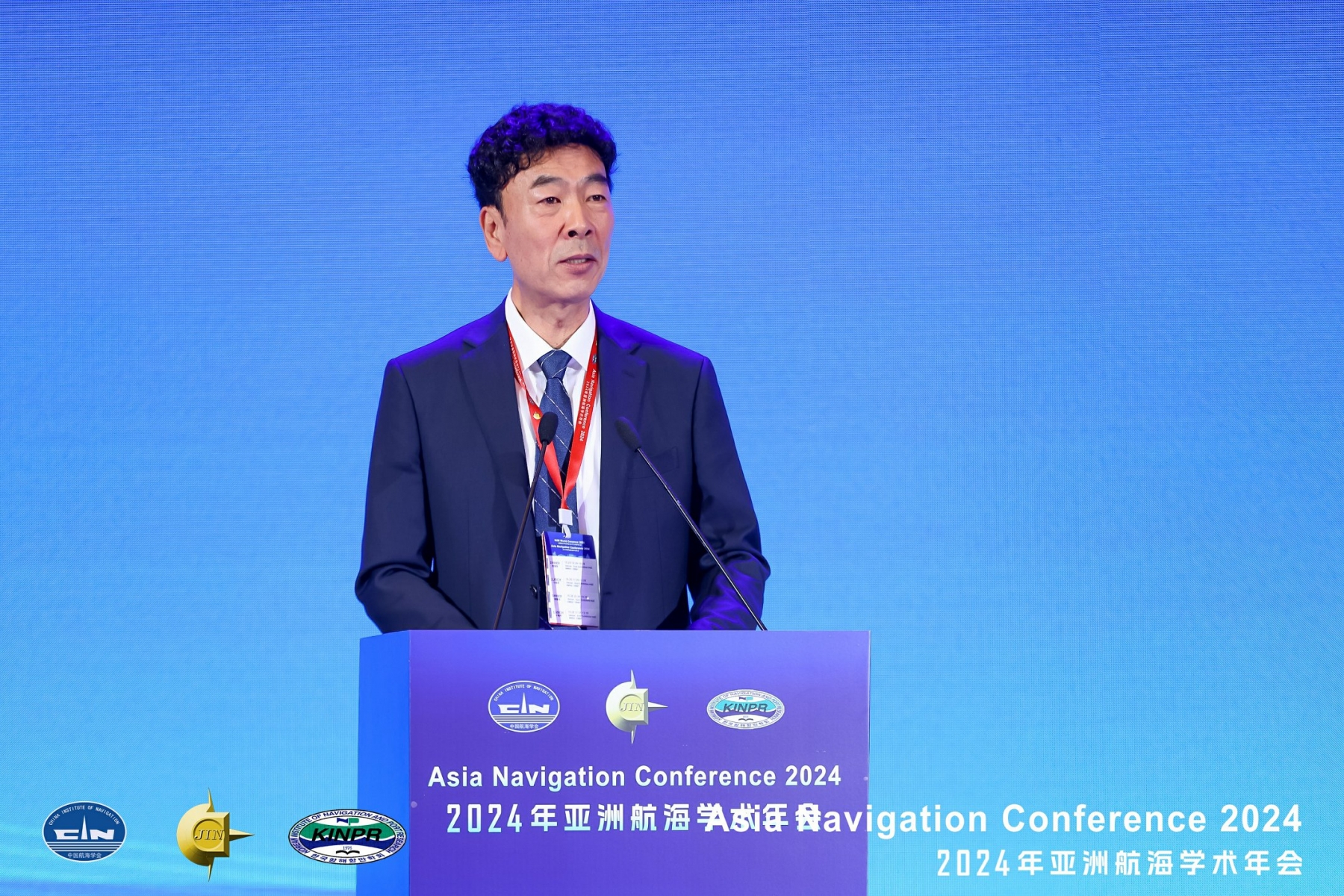
Song Jae-uk, President of the Korean Institute of Navigation and Port Research
Song stated the increasing efforts made to promote the sustainable development with the growing attention to environmental issues around the globe. In this context, he noted the need of the maritime technology industry to develop in a more environmentally friendly and intelligent direction. Song emphasized the necessity of further integrative navigation systems with technologies such as artificial intelligence, big data, and the Internet of Things to build a smarter and more efficient solutions, thereby laying the foundation for a more sustainable ocean-oriented society.

Address by Gan Jiaxiang, Deputy Director-General of the Department of Science and Technology, Ministry of Transport
Mr. Gan stated that the Ministry of Transport consistently upheld the concept of green development and accelerated the adjustment of transportation structures. He noted the continuous enhancement of maritime intelligence to accelerate breakthroughs in key technologies that constrain the development of intelligent shipping, and to felicitate the formation of internationally leading integrated technological capabilities, so as to build a global innovation center for intelligent shipping development. He also called for further strengthening in international cooperation in the maritime field, and active participation in international maritime affairs, to promote the joint development of global intelligent navigation, and share the achievements of intelligent navigation development.
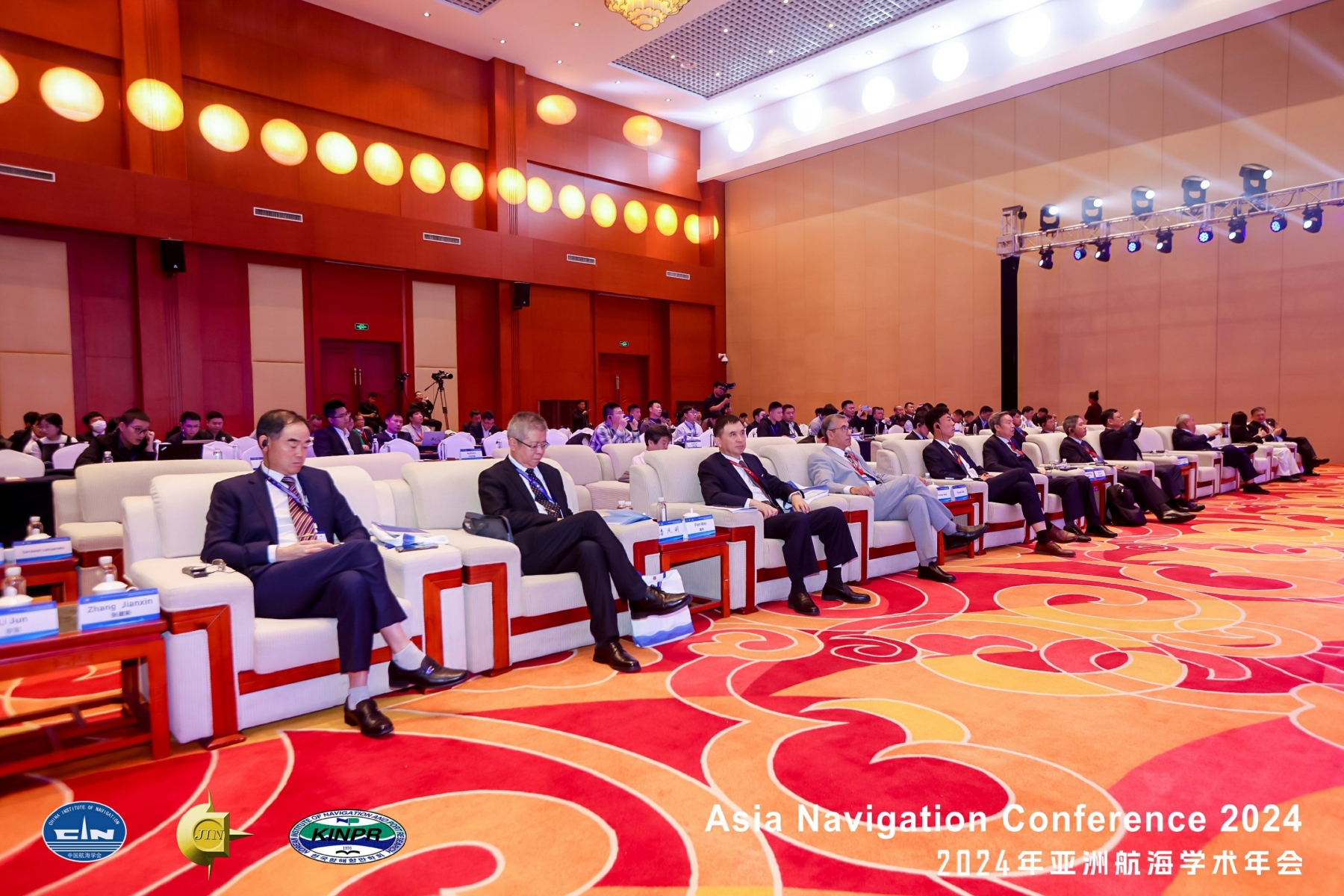
The Asian Navigation Conference (ANC), co-organized by China Institute of Navigation (CIN), Japan Institute of Navigation (JIN), and Korean Institute of Navigation and Port Research (KINPR), has gradually developed into an important platform for high-level academic exchanges in the field of navigation across Asia. In recent years, the three countries have jointly committed to strengthening connections with navigation organizations in ASEAN countries and building a normalized cooperation mechanism to enhance collaboration in the field of navigation among Asian countries. The conference has received 57 papers recommended by experts from China, Japan, South Korea, Thailand, Vietnam and other countries. Outstanding papers will be selected through on-site presentations and reviews.
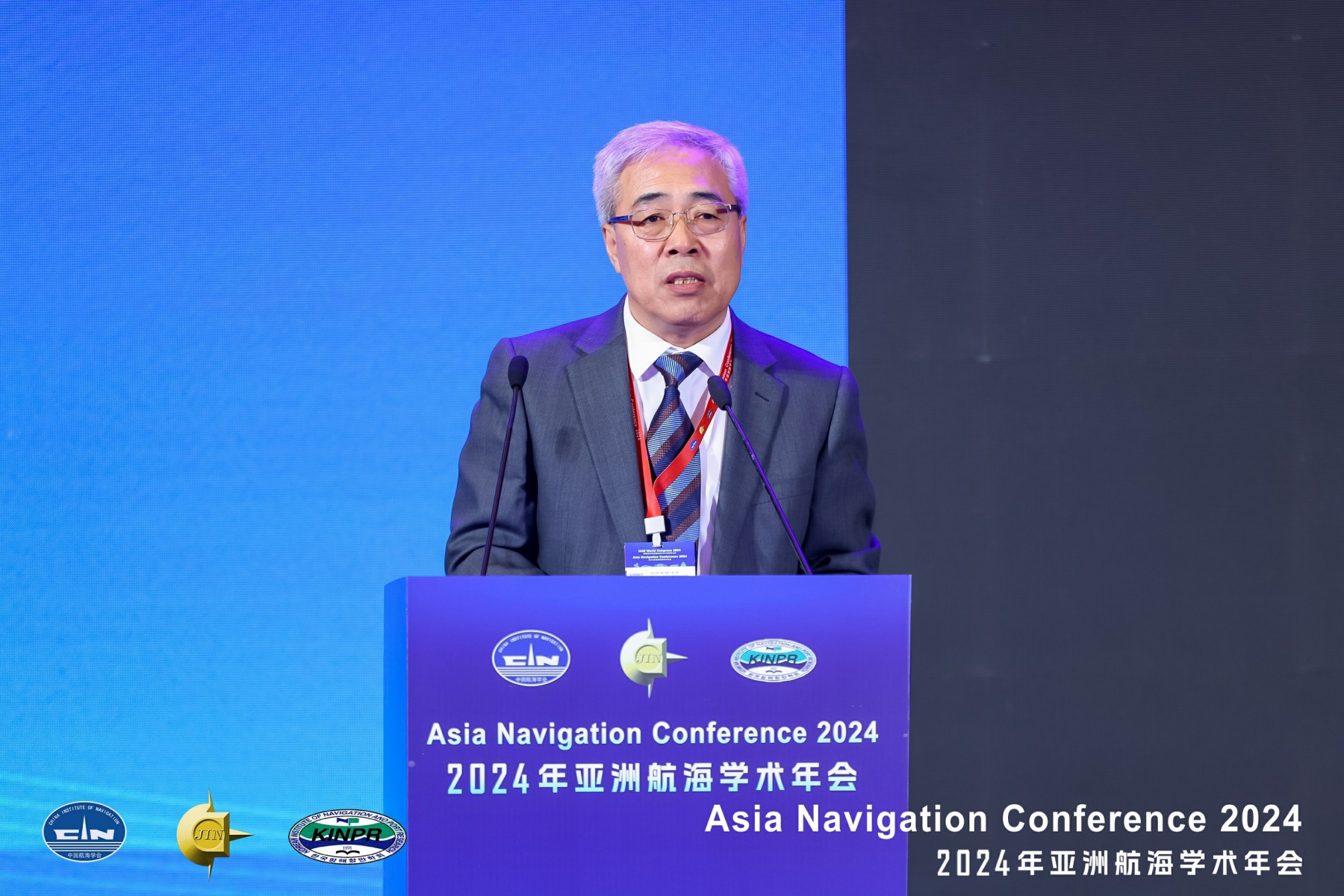
Zhang Baochen, Executive Vice President of the China Institute of Navigation (CIN)
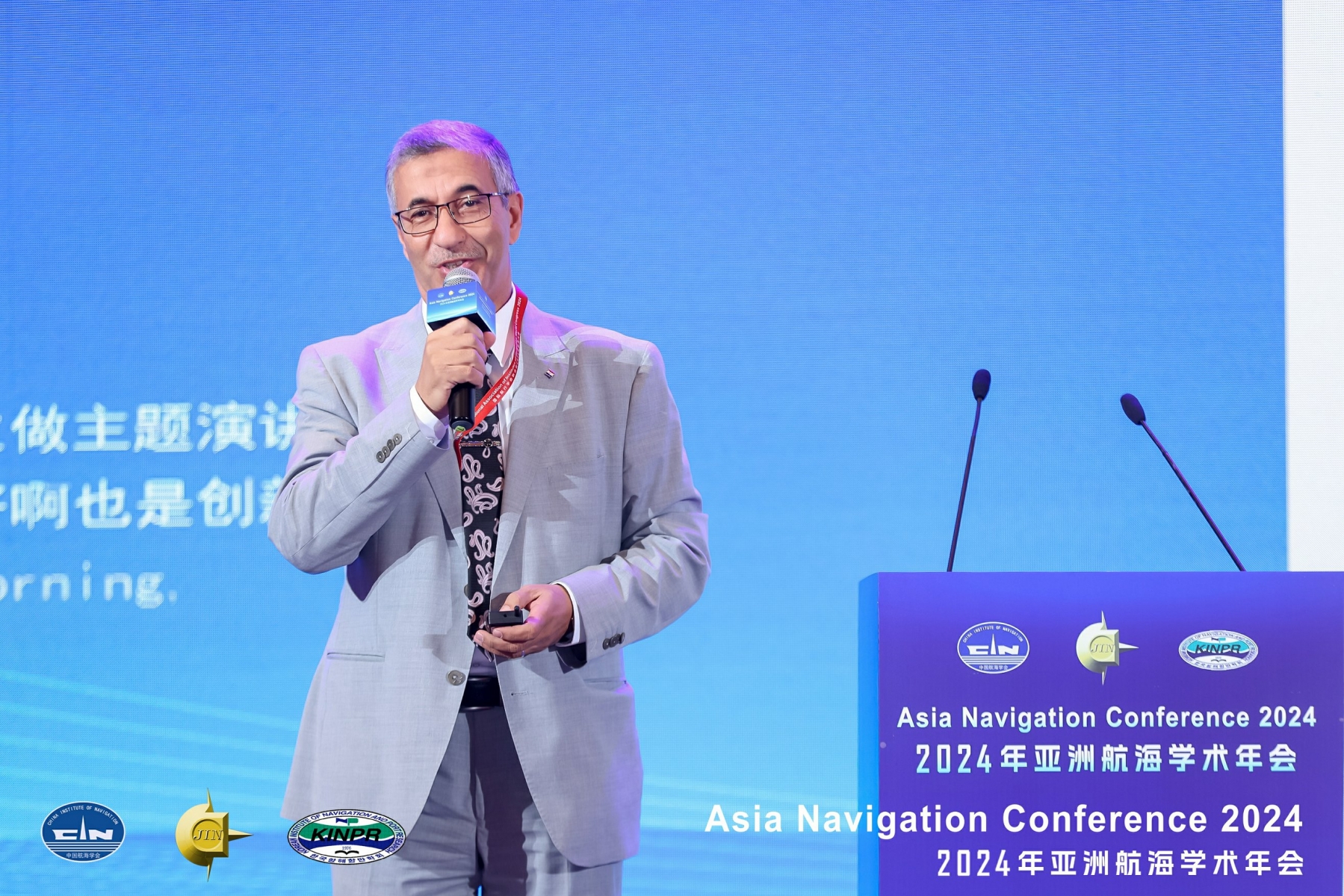
Hesham Helal, President of the Arab Institute of Navigation (AIN)
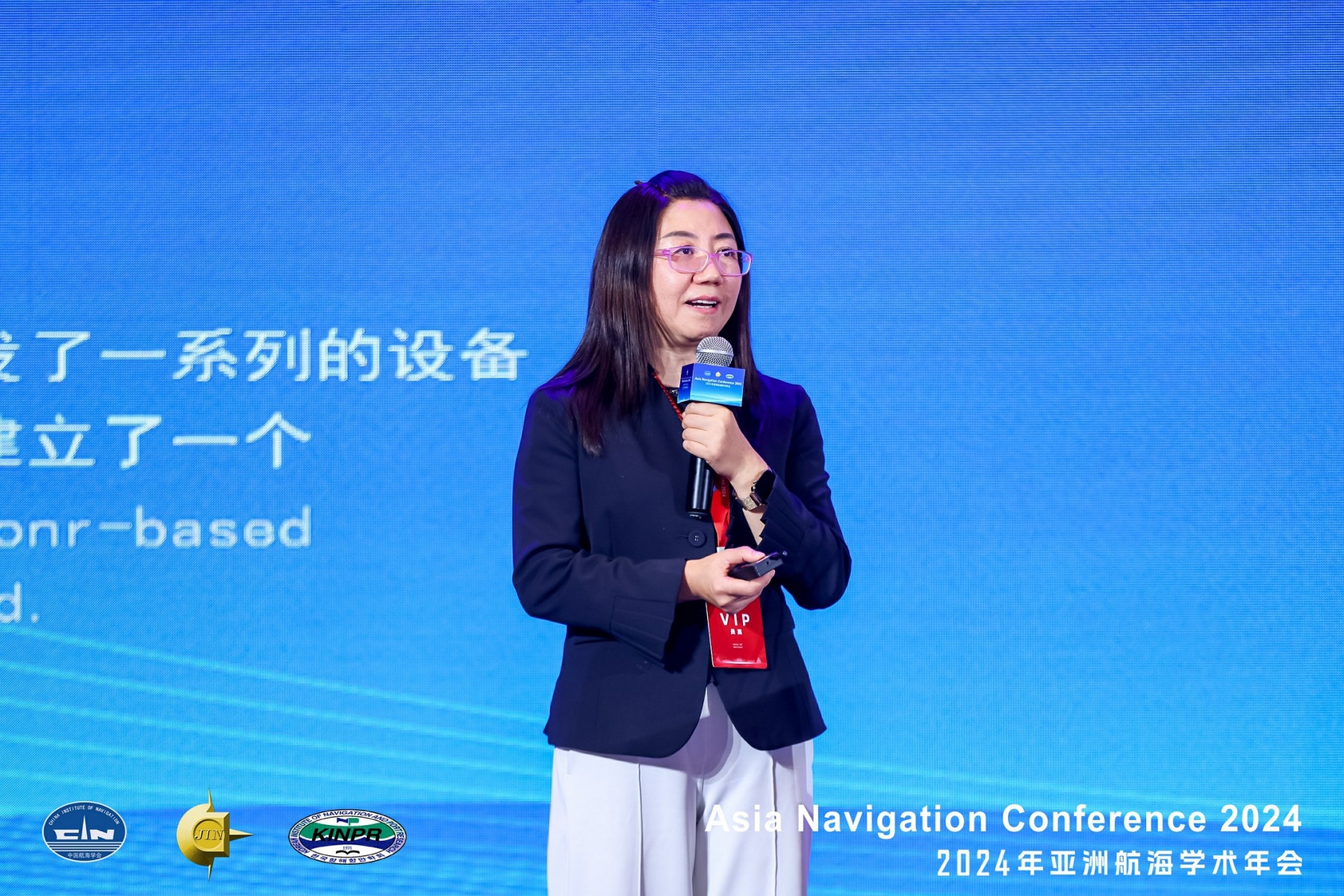
Li Ying, Professor of Dalian Maritime University
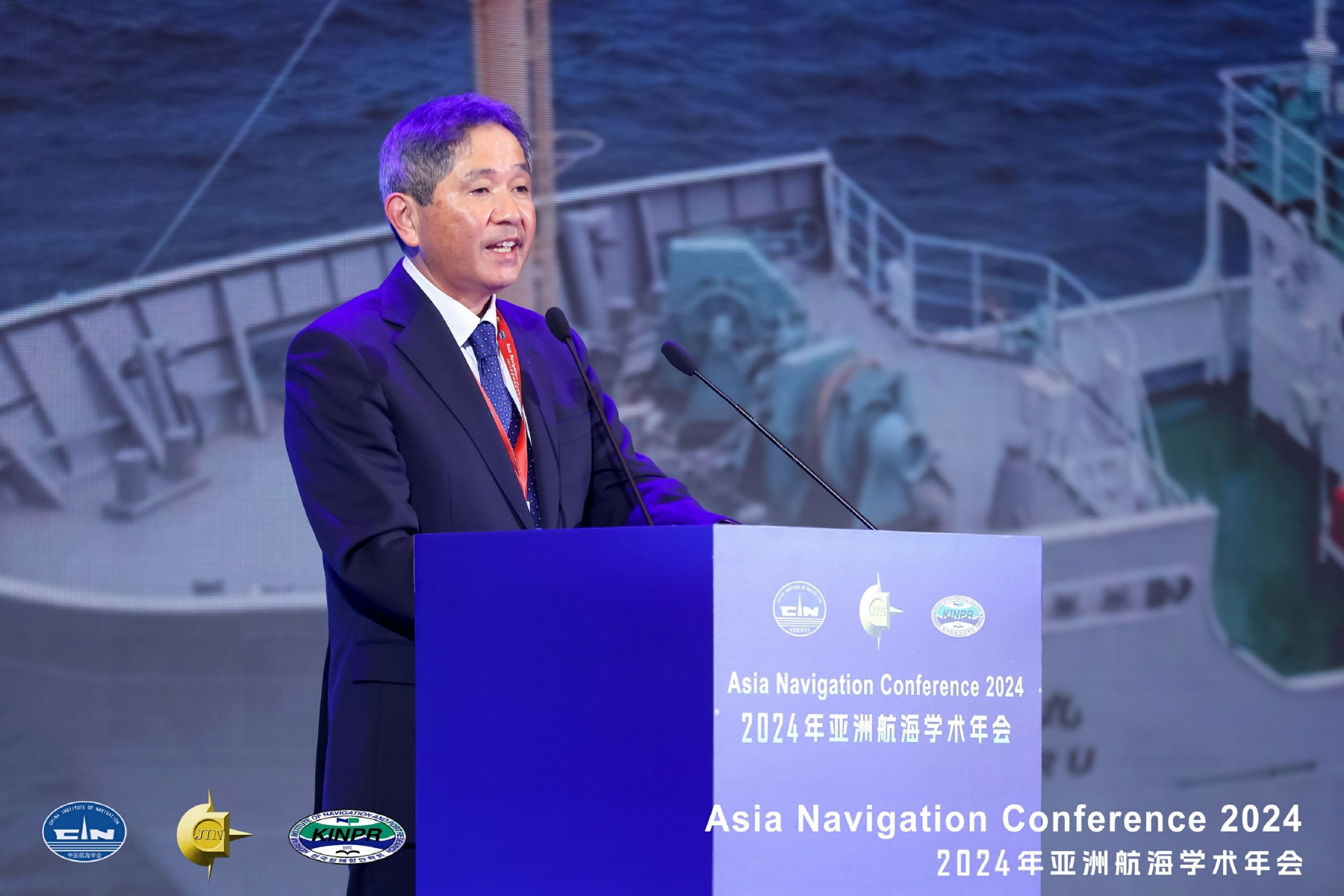
Takahiro Takemoto, President of the Japan Institute of Navigation (JIN)
Zhang Baochen, Executive Vice President of the China Institute of Navigation (CIN), Hisham Hilal, President of Arab Institute of Navigation (AIN), Li Ying, Professor of Dalian Maritime University (DMU), and Takahiro Takemoto, President of the Japan Institute of Navigation(JIN), delivered keynote speeches on topics including current status and future prospects of intelligent shipping in China, green intelligent Shipping, navigation environment perception and intelligent navigation, and navigation technologies adapting to new advancements in science and technology.
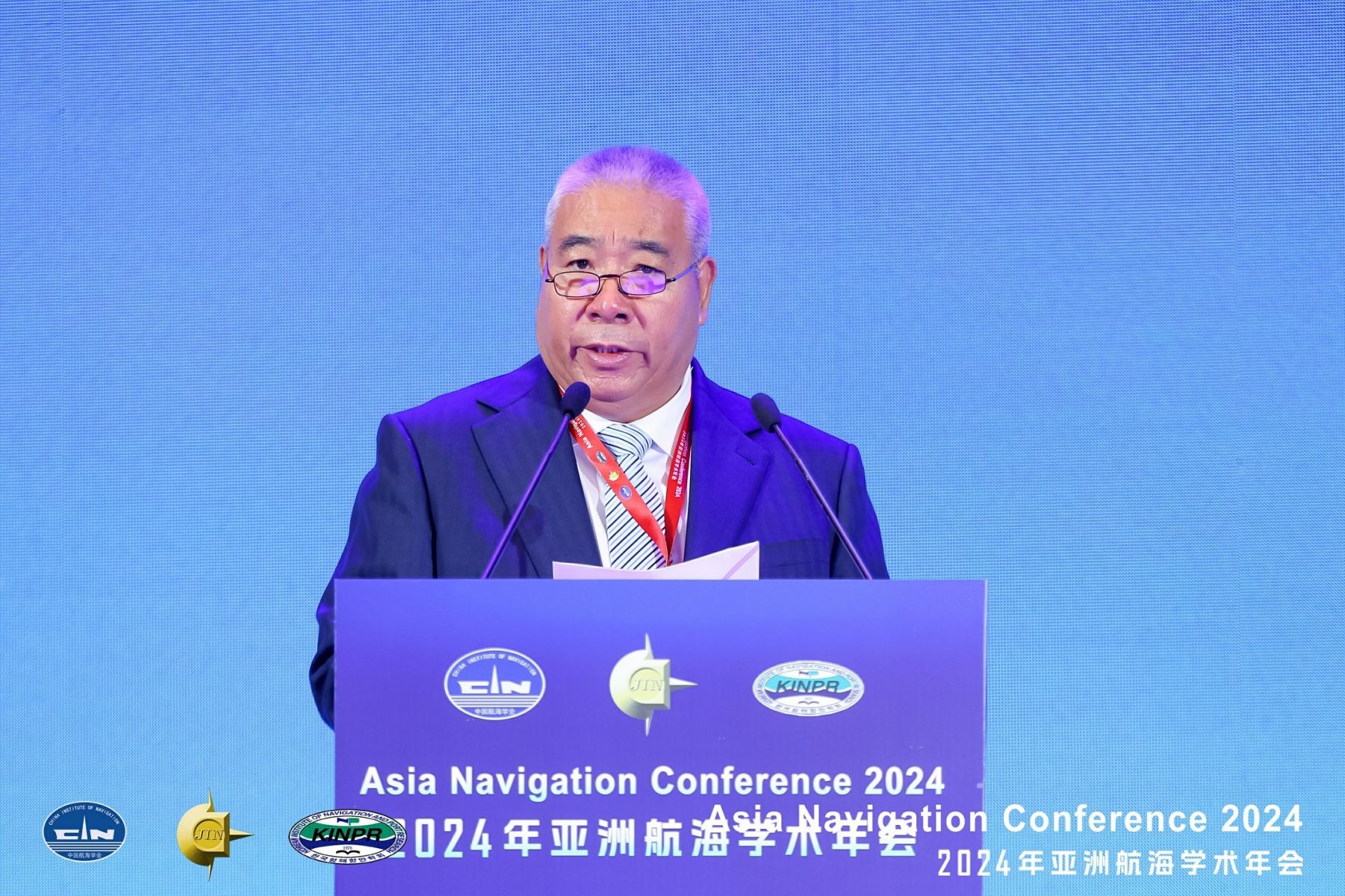
Moderator: Li Shixin, Vice chairman of CIN
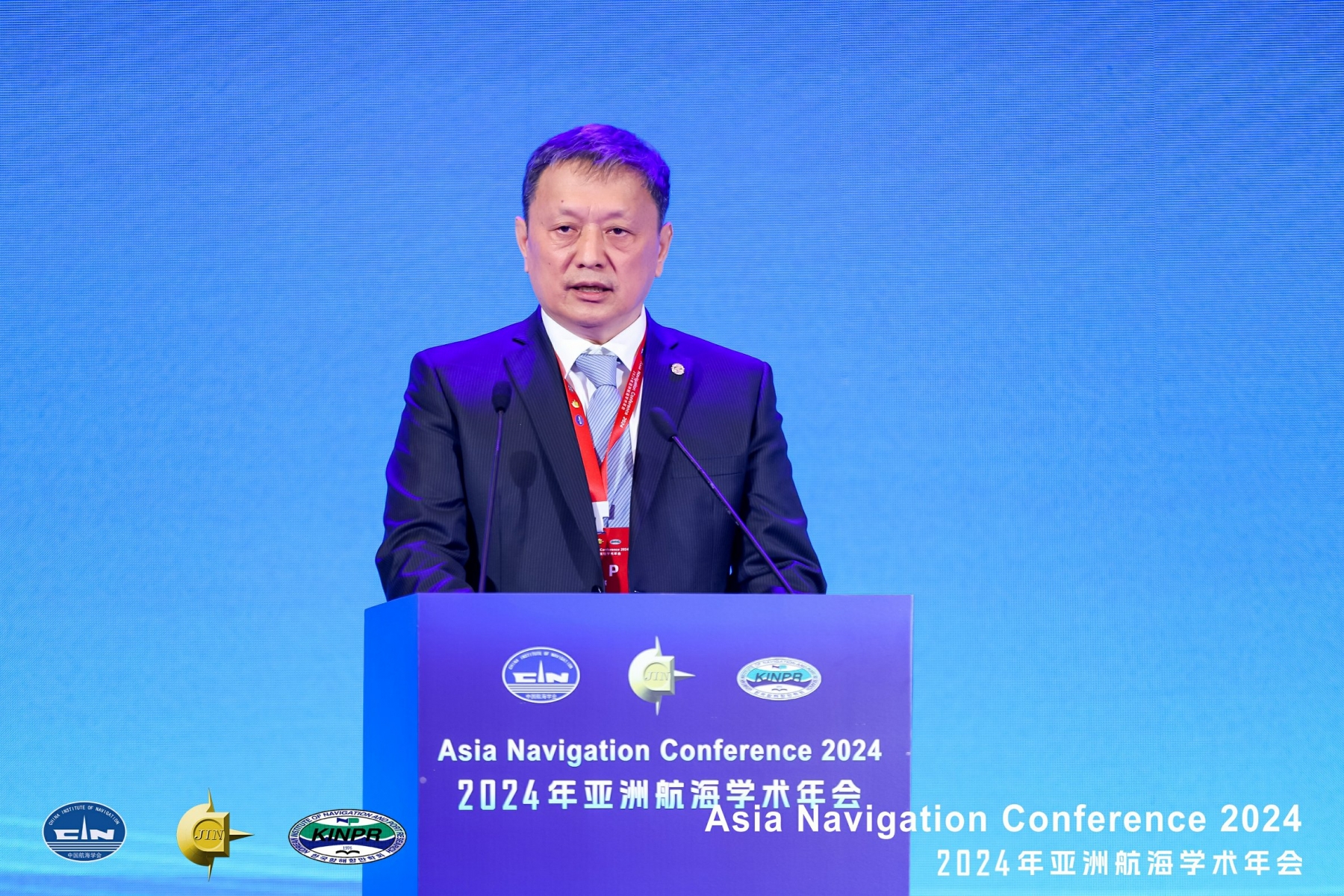
Moderator: Sun Yuqing, Vice chairman of CIN
